Death of Boris Nemtsov: a Russian parable
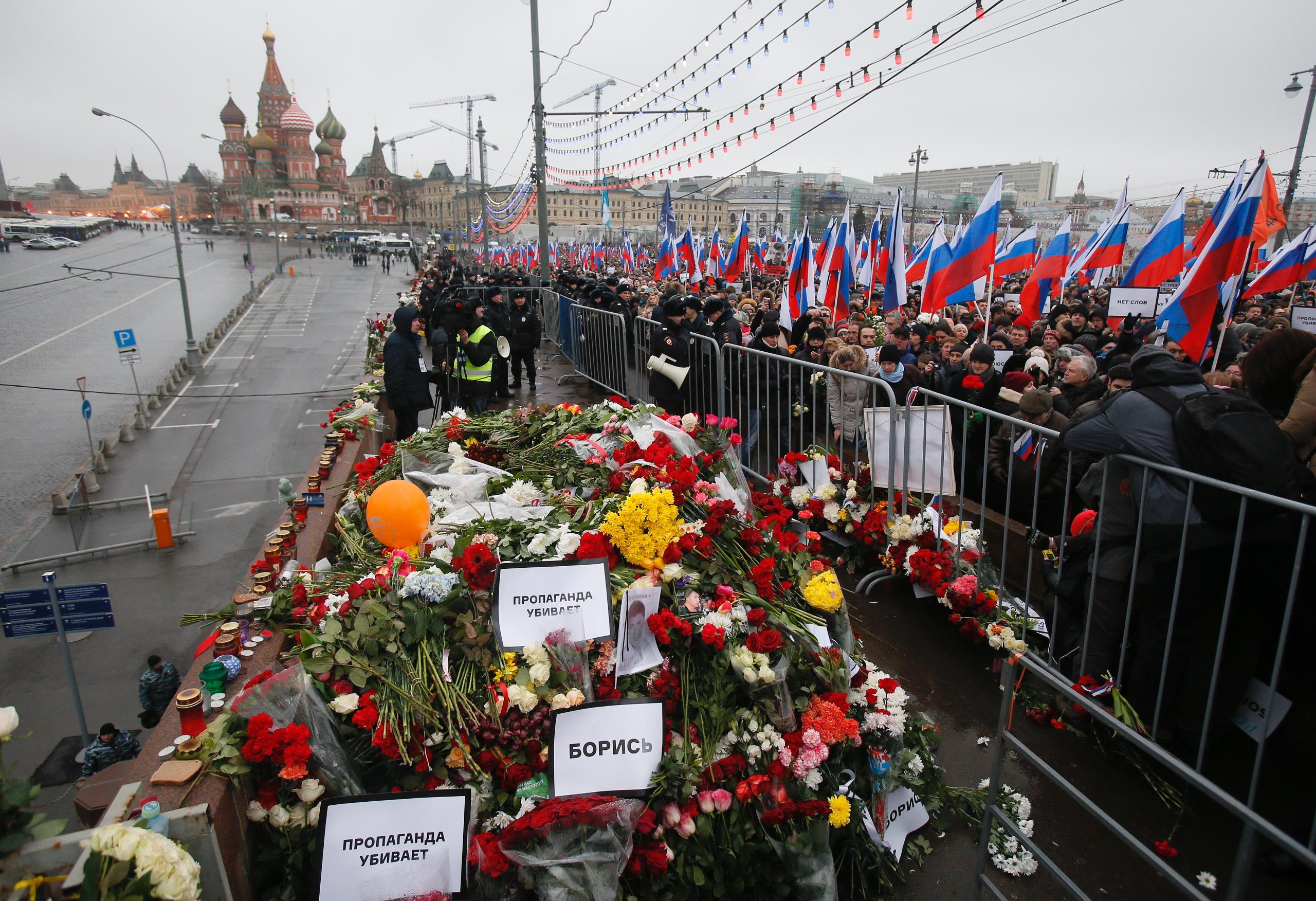
Pictures of Russian protestors filled the front pages of many Swiss newspapers on Monday following the assassination of Kremlin critic Boris Nemtsov. Editorialists weren’t holding their breath for anything to change.
On Sunday, tens of thousands of Russians marched through central Moscow, carrying banners declaring “I am not afraid” and chanting “Russia without Putin” in memory of 55-year-old Nemtsov. Families, the old and young walked slowly, with many holding portraits of the opposition politician and former deputy prime minister who was shot dead while walking home from a nearby restaurant on Friday night.
“Death in the shadow of the Kremlin” was the headline of the editorial in the Neue Zürcher Zeitung (NZZ), which went on to say that Nemtsov’s life and death was a “parable for the tragic path taken by Russia”.
“Nemtsov embodied a post-Soviet spirit of optimism: at the beginning of the 1990s, the future seemed to belong to young reformers like him,” the paper wrote. “But when, in 1997, he made it into the government in Moscow, the course had already been set in another direction. Insider capitalism ruled and authoritarian ideologies were on the way up.”
The paper said that three years later, when a clique of former security agents around Vladimir Putin took power, Nemtsov embodied the increasingly marginalised liberal opposition in Russia.
“Politically bound to lose, he posed no danger to Putin’s regime. But his violent end now shows that there’s barely room for a toothless opposition in this country.”
‘Implacable war machine’
At the time of his death, Nemtsov was working on a report that he believed proved that Russian servicemen were fighting with the separatists in Ukraine, despite official denials.
No one has been arrested for the killing. Investigators said they were looking into several possible motives and have offered three million roubles (CHF45,000) for information about the shooting.
However, Le Temps in Geneva reckoned ultimately it didn’t really matter who killed him. “From the windows of his flat in the centre of Moscow […] he could see how the climate continued to deteriorate in the country, to the benefit of the most dangerous nationalists.”
The paper said Russia had, for some time, been transformed – on an ideological as well as on a media level – into an “implacable war machine”.
Le Temps said that by listing possible motives – from a personal matter to a Jihadist killer (all of which were described by the NZZ as “absurd”) – the Russian authorities were sticking to the world view that they had deployed around the world since the start of the trouble in Ukraine a year ago: “the conspiracy is everywhere and those responsible can only be found elsewhere.”
“The assassination of Boris Nemtsov can be seen as the final cry for help faced with this journey to rock bottom. But, in its brutality, it could also be proof that it’s already too late,” it wrote.
Kerry-Lavrov meeting in Geneva
US Secretary of State John Kerry said the United States had no intelligence on who was behind Nemtsov’s shooting. “The bottom line is we hope there will be a thorough, transparent, real investigation, not just of who actually fired the shots, but who, if anyone, may have ordered or instructed this or been behind this,” Kerry said on Sunday.
Neither Kerry nor Russia’s Foreign Minister Sergey Lavrov smiled or spoke substantively as they shook hands before photographers at a Geneva hotel on Monday, less than a week after Kerry told Congress that Russian officials have lied to his face about Moscow’s role in Ukraine.
The comment drew a rebuke from the Russian foreign ministry. US officials pointed out that Kerry did not specifically accuse Lavrov of lying to him. They say he was referring to public statements and media reports, although Lavrov is the only Russian official Kerry has been known to have met face-to-face in recent months.
‘Media war’
Nemtsov was among the few prominent opposition figures who refused to be cowed. But while many at the march expressed respect for his long political career and grief at his loss, few believed that his death would spark major change in Russia because of the Kremlin’s control over national television, where a vast majority of Russians get their news.
Kremlin propaganda had identified Nemtsov as among the leaders of a “fifth column”, painting him and other opposition figures as traitors in the service of a hostile West.
For Zurich’s Tages-Anzeiger, whose front page photo was not of the demonstrators but of Nemtsov’s covered body lying on the pavement in front of Saint Basil’s Cathedral, this “media war” against dissidents had neatly split the country into patriots and traitors.
“Nemtsov had taken a stance against the annexation of Ukraine and the war there. That automatically made him, on this reading, an enemy of the Russian people,” it wrote, adding that recent opinion polls had given Putin an 85% approval rating.
It noted that the march was marked not so much by demands as by an “overwhelming sadness”. “Not only because this was a commemoration for Nemtsov, but also because many demonstrators were burying their hopes that in the coming years things would change for the better.”
‘Typical dictatorship’
The NZZ concluded that “Russia is looking more and more like a typical dictatorship in which dissidents have limited perspectives: self-denial, emigration, imprisonment or death.”
One of these emigrants is former chess champion and prominent opposition voice Garry Kasparov, who lives in self-imposed exile in the United States.
“Boris hoped, in vain as we understand, to see some form of peaceful transition into normal, civilised democratic government,” Kasparov said, describing Nemtsov as one of Russia’s leading advocates for non-violent political expression.
“I see no chance for Russia now to move from Putin’s brutal dictatorship into something that will be even as mild as we had ten years ago,” he said, predicting it could take a violent mass uprising if change was to come.
He said there appeared to be little room for political activists in Russia to manoeuvre, let alone to develop a political strategy.
“What kind of strategy is there if you can get killed?” he said.

In compliance with the JTI standards
More: SWI swissinfo.ch certified by the Journalism Trust Initiative

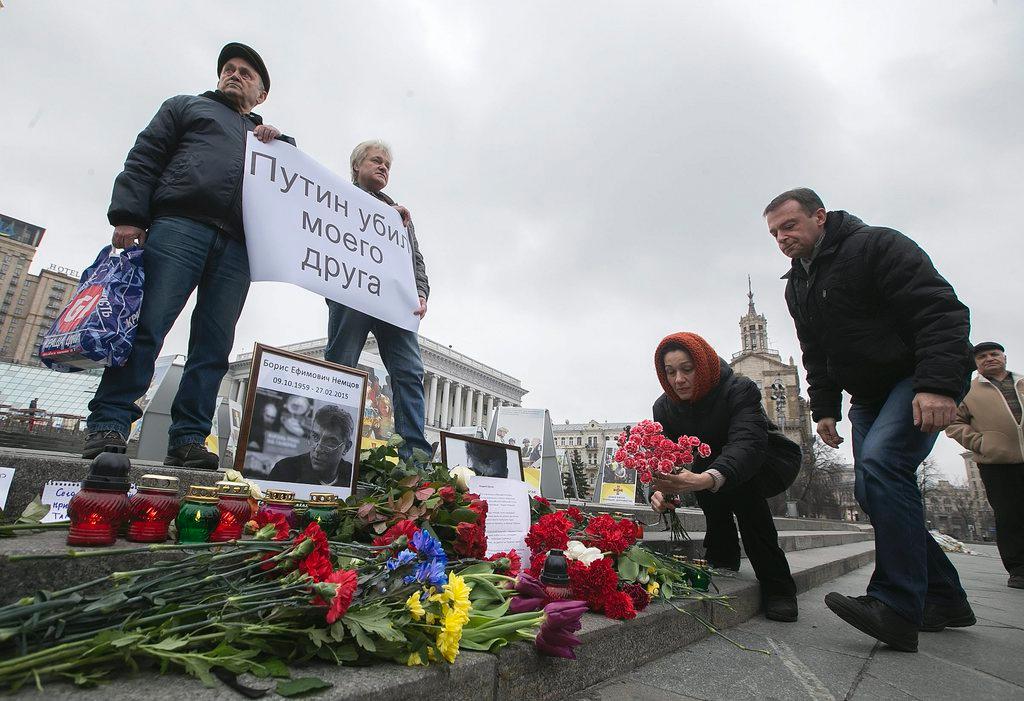
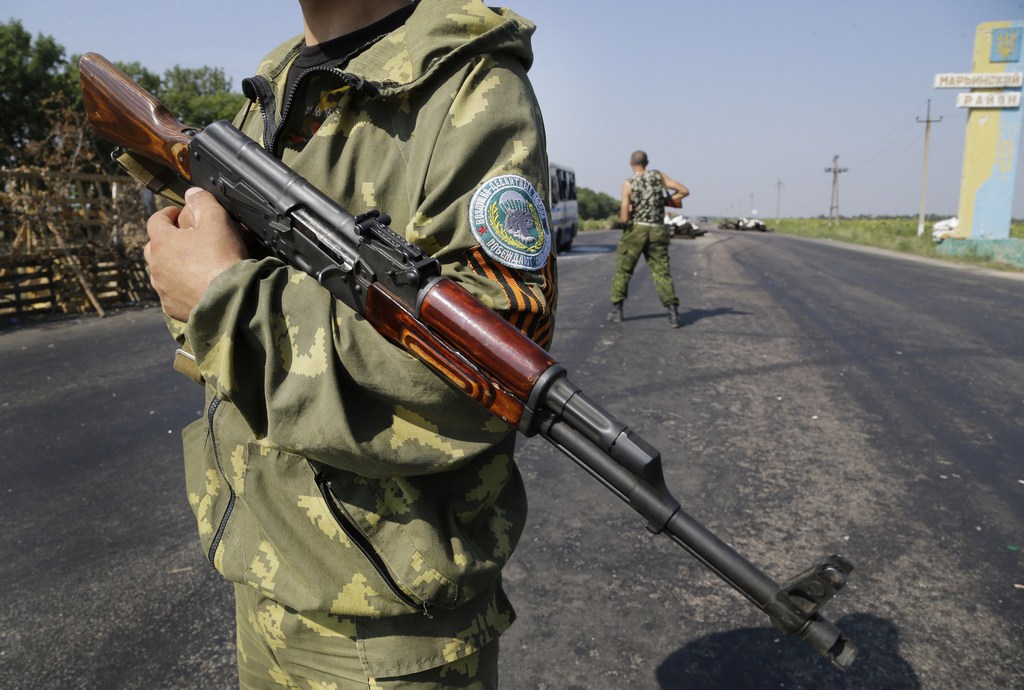
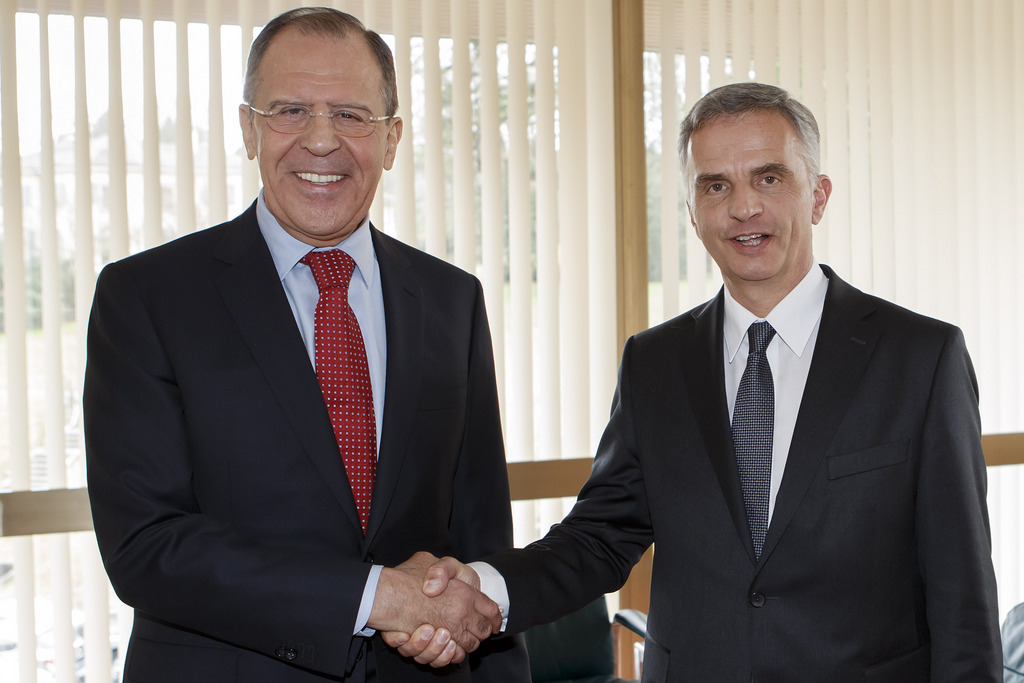
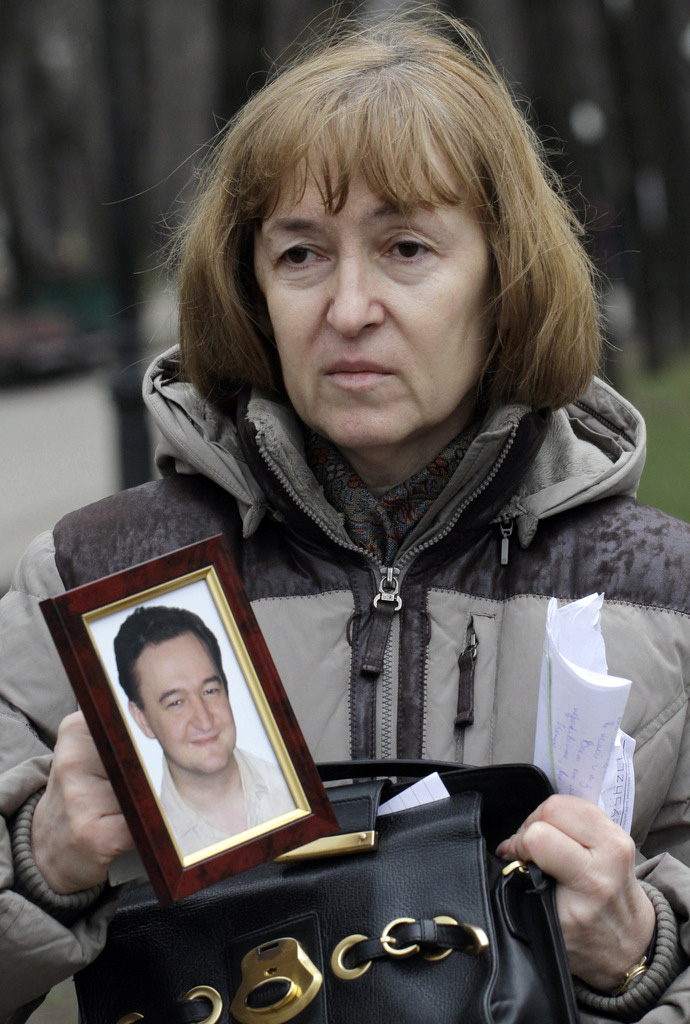
You can find an overview of ongoing debates with our journalists here. Please join us!
If you want to start a conversation about a topic raised in this article or want to report factual errors, email us at english@swissinfo.ch.